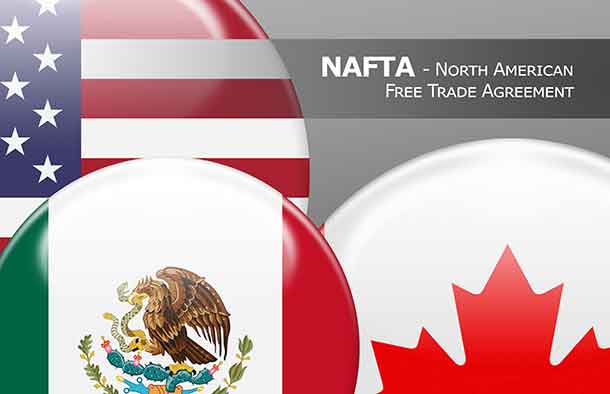Ontario to Close More Businesses to Flatten the Curve
QUEENS PARK – Premier Doug Ford was joined by Christine Elliott, Deputy Premier and Minister of Health, Dr. David Williams, Chief Medical Officer of Health, and Rod Phillips, Minister of Finance, for a media briefing on Friday, April 3, 2020.
The Premier says, “Everything we are doing is showing that what we are doing is working”.
Premier Ford says more businesses will close. On Saturday, April 4, 2020, construction will be halted with a few exceptions. There will be more business closures.
“We have had to do the unthinkable, we have been forced to close businesses, we closed schools, we have had to shut down our economy”.
The Premier says “Nothing is worth more than a life. It will be nice this weekend, but please stay home”.
The province has brought on more inspectors and over the past weeks, five construction sites have been closed.
The experts are saying that Ontario could have between 3.000 to 15,000 deaths.
Updated List of Essential Services in Ontario
Supply chains
- Businesses that supply other essential businesses or essential services within Ontario, or that supply businesses or services that have been declared essential in a jurisdiction outside of Ontario, with the support, products, supplies, systems, or services, including processing, packaging, warehousing, distribution, delivery, and maintenance necessary to operate.
Food
- Businesses that primarily sell food, beverages and consumer products necessary to maintain households and businesses including:
- Supermarkets and grocery stores.
- Convenience stores.
- Discount and big box retailers selling groceries.
- Restaurants (take-out, drive-through and delivery service only).
- Beer and wine and liquor stores.
Services
- Pharmacies.
- Gas stations and other fuel suppliers.
- Laundromats and drycleaners.
- Security services for residences, businesses and other properties.
- Vehicle and equipment repair and essential maintenance and vehicle and equipment rental services.
- Courier, postal, shipping, moving and delivery services.
- Funeral and related services.
- Staffing services including providing temporary help.
- Veterinary services (urgent care only) and other businesses that provide for the health and welfare of animals, including farms, boarding kennels, stables, animal shelters, zoos, aquariums and research facilities.
- Home child care services of up to six children as permitted under the Child Care and Early Years Act, 2014, and child care centres for essential workers authorized to operate in accordance with Ontario Regulation 51/20 (Order Under Subsection 7.0.2 (4) of the Act – Closure of Establishments) made under the Act.
- Hotels, motels, other shared rental accommodation including student residences, except for seasonal campgrounds and any pools, fitness centres, meeting rooms and other recreational facilities that may be part of the operations of these businesses.
- Cheque cashing services.
Services to the public that are restricted to alternative methods of sale
- Stores that sell any of the following items and provide them to the customer only through an alternative method of sale such as curb side pick-up or delivery, except in exceptional circumstances:
- Hardware products.
- Vehicle parts and supplies.
- Pet and animal supplies.
- Office supplies and computer products including computer repair.
- Safety supplies.
Financial services
- Businesses that provide the following financial services:
- Capital markets and related securities trading and advisory services.
- Banking/credit union activities including credit intermediation.
- Insurance.
- Land registration services.
- Real estate agent services.
- Pension and benefits payment services.
- Financial services including payroll and payment processing and accounting and tax services.
Telecommunications and IT infrastructure/service providers
- Information Technology (IT) services, including online services, software products and the facilities necessary for their operation and delivery.
- Telecommunications providers and services (phone, internet, radio, cell phones etc.) and facilities necessary for their operation and delivery.
- Newspapers, radio and television broadcasting.
Maintenance
- Maintenance, repair and property management services strictly necessary to manage and maintain the safety, security, sanitation and essential operation of institutional, commercial, industrial and residential properties and buildings.
Transportation services
- Businesses and facilities that provide transportation services, including,
- transportation services provided by air, water, road, and rail, including taxis and other private transportation providers, and
- support services for transportation services, including,
- logistical support, distribution services, warehousing and storage, truck stops and tow operators,
- services that support the operations and safety of transportation systems including maintenance and repairs, and
- marinas, but only to the extent that the marina is necessary to enable individuals to access their primary place of residence.
- Businesses that provide and support online retail, including by providing warehousing, storage and distribution of goods that are ordered online.
Manufacturing
- Businesses that extract, manufacture, process and distribute goods, products, equipment and materials, including businesses that manufacture inputs to other manufacturers, (e.g. primary metal/ steel, blow molding, component manufacturers, chemicals, etc. that feed the end-product manufacturer), regardless of whether those other manufacturers are inside or outside of Ontario, together with businesses that support and facilitate the movement of goods within integrated North American and global supply chains.
Agriculture and food production
- Businesses that produce food and beverages, and agricultural products including plants, including by farming, harvesting, aquaculture, hunting and fishing.
- Businesses that process, manufacture or distribute food, beverages, crops, agricultural products, animal products and by-products.
- Businesses that support the food or agricultural products supply chains and the health and safety of food, animals and plants.
Construction
- Construction projects and services associated with the healthcare sector, including new facilities, expansions, renovations and conversion of spaces that could be repurposed for health care space.
- Construction projects and services required to ensure safe and reliable operations of, or to provide new capacity in, critical provincial infrastructure, including transit, transportation, energy and justice sectors beyond the day-to-day maintenance.
- Critical industrial construction activities required for,
- the maintenance and operations of petrochemical plants and refineries,
- significant industrial petrochemical projects where preliminary work has already commenced,
- industrial construction and modifications to existing industrial structures limited solely to work necessary for the production, maintenance, and/or enhancement of Personal Protective Equipment, medical devices (such as ventilators), and other identified products directly related to combatting the COVID-19 pandemic.
- Residential construction projects where,
- a footing permit has been granted for single family, semi-detached and townhomes
- an above grade structural permit has been granted for condominiums, mixed use and other buildings, or
- the project involves renovations to residential properties and construction work was started before April 4, 2020.
- Construction and maintenance activities necessary to temporarily close construction sites that have paused or are not active and to ensure ongoing public safety.
Resources and energy
- Businesses that provide and ensure the domestic and global continuity of supply of resources, including mining, forestry, aggregates, petroleum, petroleum by-products and chemicals.
- Electricity generation, transmission, distribution and storage and natural gas distribution, transmission and storage.
Community services
- Businesses that deliver or support the delivery of services including:
- Sewage treatment and disposal.
- Collecting, transporting, storing, processing, disposing or recycling of any type of waste.
- Potable drinking water.
- Critical infrastructure repair and maintenance including roads, dams, bridges etc.
- Environmental rehabilitation, management and monitoring, and spill clean up and response.
- Administrative authorities that regulate and inspect businesses.
- Professional and social services that support the legal and justice system.
- Government services including but not limited to policing and law enforcement, fire and emergency services, paramedics, coroner and pathology services, corrections and court services, licences and permits.
Research
- Businesses and organizations that maintain research facilities and engage in research, including medical research and other research and development activities.
Health care and social services
- Organizations and providers that deliver home care services or personal support services to seniors and persons with disabilities.
- Businesses that sell, rent or repair assistive/mobility/medical devices, aids and/or supplies.
- Regulated health professionals (urgent care only) including dentists, optometrists, chiropractic services, ophthalmologists, physical and occupational therapists and podiatrists.
- Organizations that provide health care including retirement homes, hospitals, clinics, long-term care facilities, independent health facilities and mental health and addictions counselling supports.
- Laboratories and specimen collection centres.
- Manufacturers, wholesalers, distributors and retailers of pharmaceutical products and medical supplies, including medications, medical isotopes, vaccines and antivirals, medical devices and medical supplies.
- Manufacturers, distributors and businesses that provide logistical support of or for products and/or services that support the delivery of health care in all locations.
- Not-for-profit organizations that provide critical personal support services in home or residential services for individuals with physical disabilities.
- Not-for profit organizations that support the provision of food, shelter, safety or protection, and/or social services and other necessities of life to economically disadvantaged and other vulnerable individuals.
.






